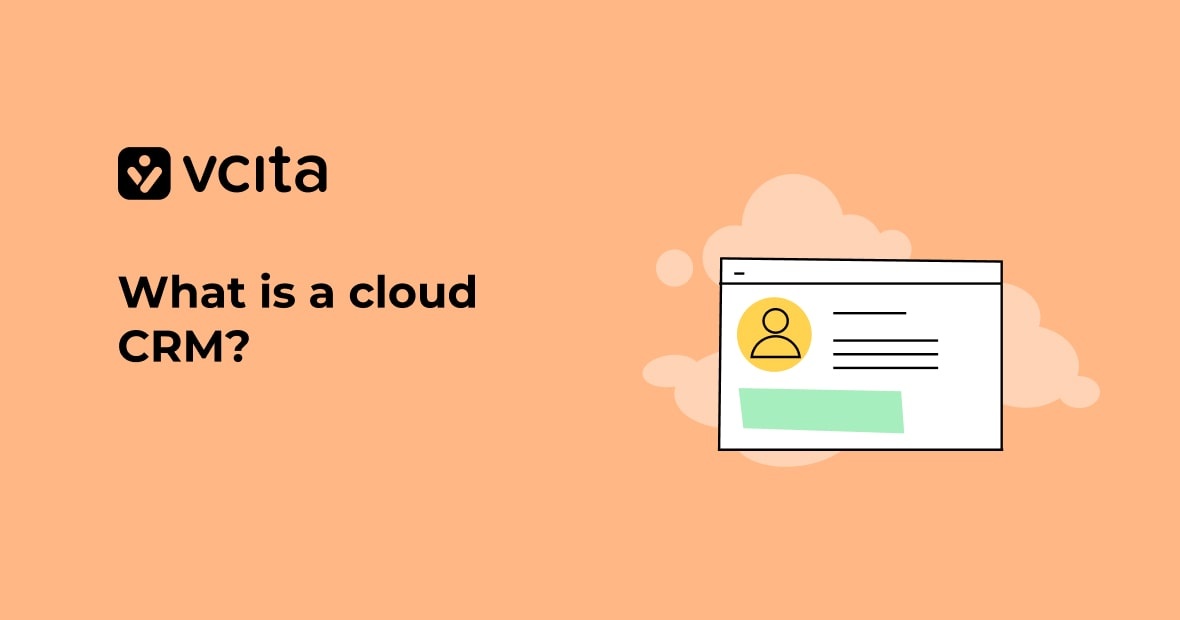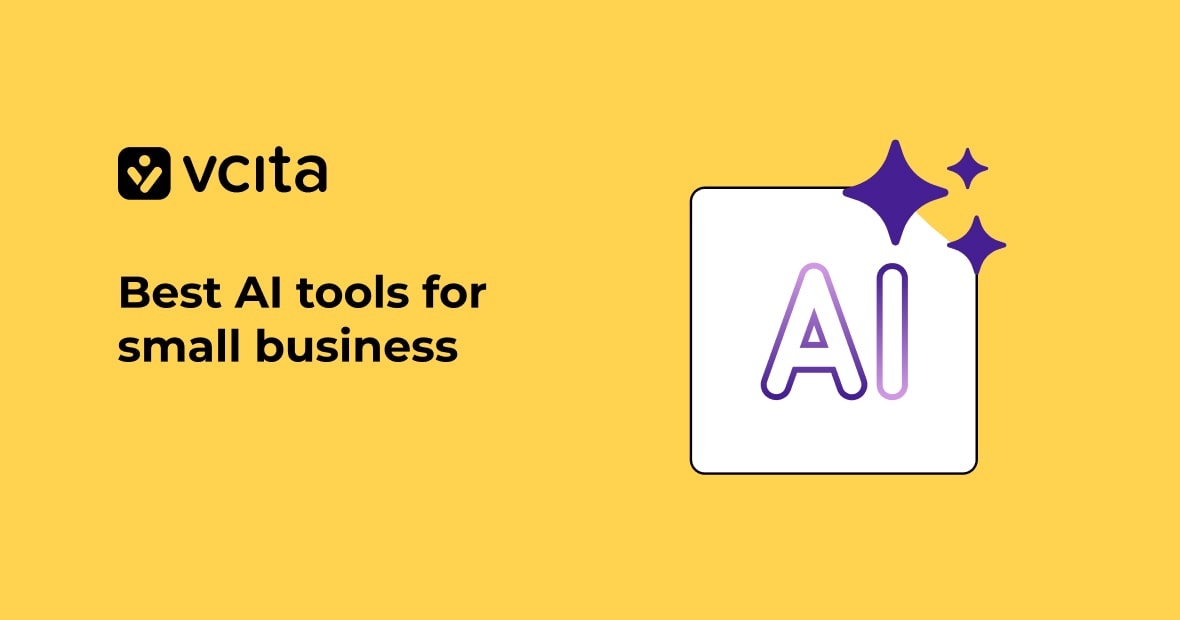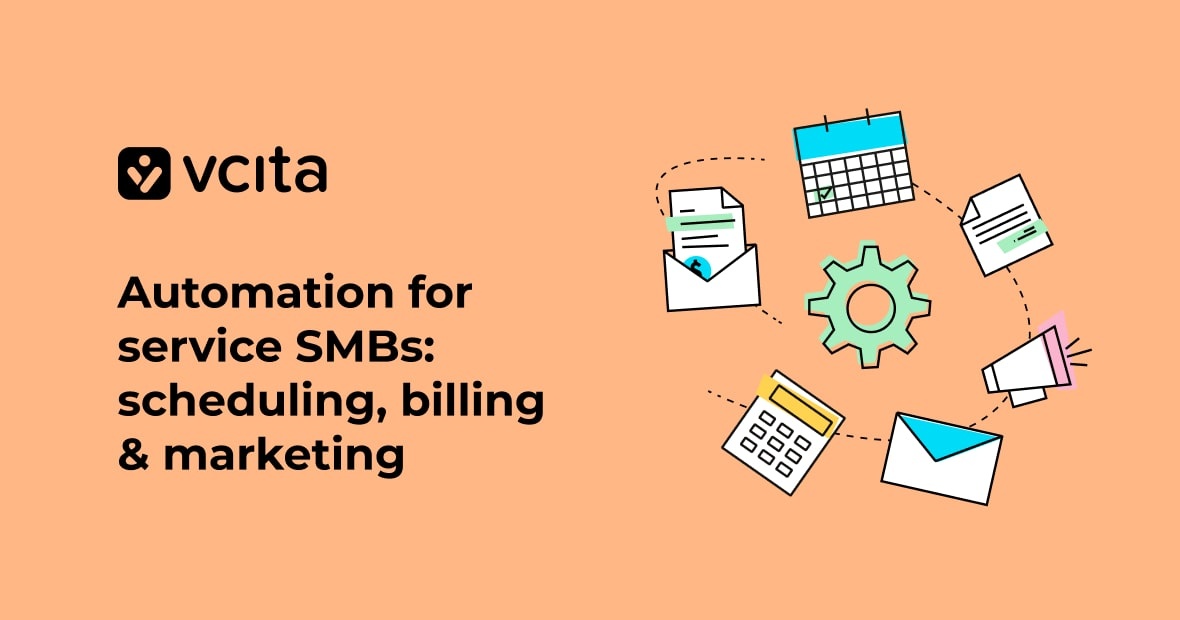Get AI insights on this blog post:
ChatGPT
Perplexity
As a small business owner, you juggle a hundred things at once. Between managing operations, winning new clients, and keeping existing customers happy, it’s easy to feel overwhelmed. But there’s a simple solution that can help you stay on top of it all.
Your new assistant is a cloud-based CRM, or Customer Relationship Management system. An affordable, easy-to-use cloud CRM organizes all your important customer data in one place. It tracks contacts and records every interaction with every customer to help you nurture relationships more effectively.
Key benefits of using a cloud CRM for small businesses:
- Automate admin tasks and client follow-ups to save time and reduce manual workload.
- Access your customer data anytime, anywhere via any device with internet connectivity.
- Reduce IT costs, no need for on-premise servers or expensive hardware.
- Improve customer experience with faster response times and personalized communication.
- Use built-in analytics and reports to track sales, client activity, and business growth.
- Integrate easily with tools like email marketing, calendars, and payment systems.
- Scale your CRM as your business grows, adding features or users when needed.
- Rely on automatic updates and built-in security without worrying about system maintenance.
With a cloud CRM, you’ll never again forget an important detail about a customer or miss following up on an opportunity, and you’ll always have all your customer information at your fingertips, even when you’re out of the office.
Read on to find out more about why your small business needs a cloud CRM, and the features you should look out for in a cloud-based CRM solution.
What is a cloud CRM and why your small business needs one
A cloud-based CRM is a customer relationship management software that’s hosted online by the software provider, rather than on your own servers. You access it via the internet instead of on your on-premise network, so you can manage customer relationships from anywhere, using any internet-enabled device.
Like other types of CRM, a cloud CRM gives small business owners a convenient, low-cost way to organize customer information in one place and build better relationships. It provides tools for managing contacts, tracking communications, automating follow-ups, and gaining insights into your customers and sales pipeline.
Cloud CRM software is affordable and easy to set up, and you won’t have to manage maintenance or security for the system and data, because it’s all handled by the cloud CRM provider. Cloud CRMs are also flexible and scalable.
Benefits of cloud CRM for small businesses
As a small business owner, your time is extremely valuable. A cloud-based CRM solution is a secret weapon for streamlining operations, freeing you from tedious admin work, and ultimately boosting your bottom line. Here are some of the benefits you could expect to enjoy when you implement a cloud CRM.
Cost savings
Cloud CRMs eliminate the need for expensive on-site hardware and IT resources. Because the software and data are hosted in the cloud, you only pay a low monthly subscription fee. No more wasting money on outdated technology that quickly becomes obsolete.
Constant access
With a cloud CRM, critical customer information is available wherever you need it. You can check customer data, enter a sales lead, or review analytics from any device. No more frantically searching for misplaced files, or discovering that the information you need for your client meeting is stuck on a desktop computer at the office.
Powerful insights
Cloud CRMs offer robust reporting and analytics that provide data-driven insights into customer preferences and business performance. See which marketing campaigns drive the most leads, which services are selling best, who your most loyal customers are, and more, so you can make smarter decisions based on real-time information.
Seamless integration
A good cloud CRM easily integrates with many of the other tools you already use, like email marketing services, accounting software, and payment platforms. Information flows automatically between systems, reducing manual entry and risk of errors.
Total scalability
Cloud CRM software is also flexible and scalable, so it can grow with your business as your needs change over time. Many providers offer different pricing tiers based on the number of users and features, so you only pay for what you need, and you can upgrade or downgrade at will.
External maintenance
Cloud software relieves you of the burdens of maintenance and cloud security management. The provider not only hosts and maintains the system but also ensures continuous software updates and robust security measures to protect customer data and digital privacy. With dedicated expert teams, they manage cloud security management and system performance, allowing you to concentrate on your core business activities.
Key features to look for in cloud CRM software
As a busy entrepreneur, you need tools that simplify your workday, not complicate it. The best cloud-based CRM software delivers, offering powerful features tailored to small business owners like yourself. Here are the top features to keep in mind before you buy cloud CRM software.
Easy-to-use client database
Ideally, you’ll get an intuitive client database that lets you store contact details, notes, and project histories all in one place. Check you can easily add new clients and sort them into customizable fields like location, industry, or category. For example, vcita has a simple interface that lets you import and organize data in no time, with color-coded labels that enable you to spot important client details at a glance.
Automated scheduling and reminders
Tired of the back-and-forth emails trying to find a meeting time? Look for a smart scheduling software like vcita that connects directly with your calendar to enable clients to find times that work for everyone. Once a meeting is booked, automated reminders ensure no one forgets. With scheduling and reminders taken care of, you can focus on preparing for your meetings.
Built-in marketing tools
Powerful marketing tools make it easy to stay in touch with your clients and keep your business top of mind. A good CRM solution helps you create email newsletters, promotions, and drip campaigns, and reach your entire client list with a single click. Find a platform like vcita that lets you see open and click rates to know what content resonates most with your audience, and schedule regular “check-in” emails or texts to your VIP clients.
With all these features and more, vcita’s CRM software has everything you need to build lasting client relationships and grow your business.
Getting started with vcita’s cloud CRM: a step-by-step guide
vcita’s CRM platform is intuitive and easy to use, with interactive guides, video tutorials, and onboarding resources that make it quick to get started. Here are 5 steps to take to set up and start using the vcita cloud CRM.
Set up your free account
Head to vcita.com and create your free account. All you need is an email address and password. Once you create your account, the system will walk you through setup tasks like configuring basic business information and entering your contact details.
Add your customers and leads
Now it’s time to populate your CRM with customer information. For each contact, include details like name, email, phone number, mailing address, and notes about your relationship and interactions. You can import customer and lead contact information automatically from a spreadsheet or database, or add it manually.
Organize with tags and lists
Use tags and custom contact lists to categorize your customers and leads. For example, you can create lists for customer types (e.g. repeat vs. new), location, industry, interests, etc. You can also tag individual contacts to include them in multiple lists. These tools make it easy to view and manage specific contacts.
Track your interactions
Log all communications and interactions with your contacts, including emails, calls, meetings, and more. Take notes and set reminders about any pending actions required on your part. The CRM generates an interaction timeline which provides an at-a-glance view of your relationship with each contact.
Generate reports and insights
vcita’s reporting features aggregate all your customer and lead data to identify key trends and patterns in your business. You can use this to view things like your most valuable contacts, busiest times of day or year, most common interaction types, and more. Use these insights to optimize your marketing, sales, and service efforts.
5 tips for using cloud CRM to improve your small business operations
A CRM platform can be an invaluable tool for small businesses. Here are a few suggestions for ways to use your cloud CRM to improve operations:
Streamline customer support
A CRM keeps all your client information in one place, including contact details, notes from conversations, purchase history, and more. This makes it easy to keep track of clients and provide great customer service. You’ll always be able to address a customer by name and remember the last time they got in touch, and your customers have the irritation of repeating information that they’ve provided before.
Improve sales processes
Use a CRM to manage your sales pipeline and close more deals. You can see which prospects have reached different stages of the marketing and sales funnel, schedule follow-ups, log calls and meetings, and get reminders to ensure that you never miss an opportunity to contact a potential customer. This organization and automation boosts your team’s productivity and effectiveness.
Enhance marketing campaigns
By providing a 360-degree view of customers and prospects, your CRM helps you create targeted marketing campaigns. See who’s most likely to be interested in a new product or service and reach out to them, send the right message to the right person at the right time, and segment contacts more accurately for more impactful marketing efforts.
Make data-driven business decisions
A CRM provides the data and insights you need to make better business decisions that are based on data, not gut feelings. Use CRM reports to track trends in your sales pipeline, understand seasonal changes in revenue or client activity, spot gaps in your client base, and more. This way you can forecast sales and cash flow more accurately, understand customer expectations, and plan strategically to set your business up for success.
Increase customer retention
CRM information can help you prevent customer churn and increase loyalty. For example, it can notify you when a contract is about to end, so you can send a reminder email that encourages the customer to renew. Or generate alerts about customers who haven’t made a purchase in a while so you can send a discount voucher. CRMs also include tools to monitor customer satisfaction and help you address customer concerns more quickly, all of which helps boost customer retention.
Strengthen customer relationships smartly
For small businesses wanting to strengthen customer relationships in a smart, affordable way, a cloud CRM is a strategic investment that pays dividends through increased efficiency, productivity, and sales. An easy to use, affordable solution like vcita delivers a complete, centralized view of your business and customers in one place, together with powerful insights to make smart decisions and drive growth.
If you’re ready to take your business to the next level, it’s time to embrace a cloud CRM. In just a few clicks, you can get started with a free trial of vcita, and see how it transforms your business.
Cloud-based CRM FAQ
What are the main benefits of using a cloud CRM?
A cloud CRM helps businesses automate tasks, reduce IT costs, access customer data remotely, improve customer communication, and integrate with other tools like email marketing and payment systems.
How does a cloud CRM save time for small businesses?
A cloud CRM automates administrative tasks, appointment scheduling, and client follow-ups, allowing business owners and staff to focus on growth and customer service.
Can a cloud CRM grow with my business?
Yes. Cloud CRMs are scalable, allowing small businesses to start with essential features and add more functionality or users as the business grows.
Is cloud CRM secure?
Most cloud CRM providers offer advanced security measures, including encryption, regular data backups, and compliance with industry standards, ensuring customer data is protected.
How is a cloud CRM different from a traditional CRM?
A traditional CRM requires on-premise servers and IT support, while a cloud CRM is hosted online, accessible from anywhere, requires no hardware, and includes automatic updates and maintenance.
Want to learn more about cloud CRM?
CRM evaluation made easy: your handy CRM checklist
Choosing the right CRM solution for your small business can be crucial for success. Use this checklist to find and implement the ideal CRM software that will help your business thrive.
Read more: CRM evaluation made easy: your handy CRM checklist
CRM automation for small business: manage customers effortlessly
CRM automation is the secret sauce for efficient business management. Learn how to save time, drive more sales, and increase customer loyalty.
Read more: CRM automation for small business: manage customers effortlessly
Personal CRM: the game-changer for small business owners
Learn all about the essential features of a personal CRM for small business owners, and discover the difference it can make for your small business relationships.
Read more: Personal CRM: the game-changer for small business owners
CRM for therapists: maximize client engagement
Discover how a CRM for therapists can improve your client management and free you to focus on client experience, helping you optimize your business and grow your revenue.
Read more: CRM for therapists: maximize client engagement
Streamline operations with a CRM for plumbers
Discover the impact that a CRM for plumbers can have for your plumbing company. Learn how to choose the right one.
Read more: Streamline operations with a CRM for plumbers
CRM for insurance agents: How to enhance your sales pipeline
CRM software for insurance agents: Learn what to look for in a good insurance CRM and how to use it for the greatest impact.
Read more: CRM for insurance agents: How to enhance your sales pipeline
CRM for financial advisors: manage your clients with ease
The right CRM for financial advisors can be the secret sauce that brings business success. Learn what a CRM can do for your financial advisor business, and how to choose the best one for your needs.
Read more: CRM for financial advisors: manage your clients with ease
CRM for freelancers: master client management
Learn how a CRM for freelancers can turn your small business into a powerhouse of efficiency and growth. Find out which features to look for in the right CRM for freelancers.
Read more: CRM for freelancers: master client management
CRM for coaches: manage clients and grow your brand
Find out the benefits of using CRM solutions for coaching business, and learn how to choose the right CRM tool to grow your business.
Read more: CRM for coaches: manage clients and grow your brand
How event management CRM can boost your business
A robust event management CRM can help you to raise the bar on event management, boost attendee satisfaction, and drive revenue and growth for your event planning business.
Read more: How event management CRM can boost your business
CRM for tax professionals: manage clients seamlessly
The benefits of a CRM solution that’s designed for tax professionals. Learn what features to look for and how to choose the right CRM to help your accounting firm grow.
Read more: CRM for tax professionals: manage clients seamlessly
CRM for service providers: streamline customer interactions
The power of CRM software for service businesses. Learn how to put these functionalities to good use and drive growth and success.
Read more: CRM for service providers: streamline customer interactions
CRM for designers: manage your business like a pro
The right CRM for designers streamlines project management, lead generation, and much more for web designers, interior designers, graphic designers, and other kinds of design firms.
Read more: CRM for designers: manage your business like a pro
Choosing the best CRM for your marketing agency
How to find the best CRM system for your marketing agency and improve your bottom line.
Read more: Choosing the best CRM for your marketing agency
Roofing CRM software: the must-have tool for roofing contractors
Choose a roofing CRM with the right features for your roofing company, and apply best practices to boost sales, improve customer satisfaction, and streamline operations for a thriving roofing business.
Read more: Roofing CRM software: the must-have tool for roofing contractors
Supercharge your cleaning service with CRM for cleaning business
Discover the power of a CRM designed specially for cleaning businesses. Learn how to use a cleaning business CRM to drive business growth.
Read more: Supercharge your cleaning service with CRM for cleaning business




























